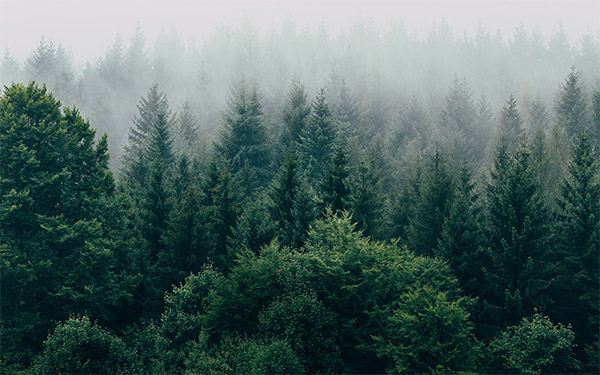
Why are primary forests important?
Primary forests store 30-70% more carbon that other forests and harbour biodiversity.
Primary forests are those forests still dominated by natural processes with few industrial land use impacts. They are irreplaceable sanctuaries for much of the world's biodiversity, play a significant role in global climate, and support the livelihoods of indigenous custodians.
There are around 1.4 billion hectares of primary forest, however, only 20% is in protected areas.
Natural Arks for biodiversity
Primary wet temperate forests harbour diverse biological communities that experience distinct seasonal changes affecting productivity, ecosystem services, and migratory species, especially birds.
- Include both exceptionally biodiverse and productive older forests and complex early seral forests created by natural disturbance regimes ranging in frequency and intensity including intense events that kill most of the trees in an area.
- Lichen richness is among the highest of any ecosystem.
- Forest carnivore assemblages and complex food-web dynamics are fully present and functional.
- Keystone species, like anadromous salmon, connect terrestrial and marine environments through nutrient cycling of spawned-out salmon carcasses.
- Small mammals feed on below-ground fungi, aiding in spore dispersal of mycorrhizae, allowing plants to take up nutrients efficiently.
- Myriad ecosystem services such as nutrient cycling, soil development, climate regulation, and water filtration.
- Temperate forests cover roughly one-third of original extent vs. 45-65% for tropical and boreal forests, respectively
Vast carbon stores
Our climate and biodiversity stories are intimately intertwined. Primary forests are a globally-significant store of carbon. Protecting primary forests secures a safe climate.
- 56% of the carbon stored in tropical forests is within living organisms.
- Forest growth drives carbon sequestration, but emissions caused by deforestation and degradation take decades to centuries to reverse.
- Degradation and deforestation of tropical forests for alternative land uses, such as agriculture and pasture, emits 4.7 billion tonnes of carbon each year.
- Tropical production forests store on average 35% less carbon than tropical primary forests of the same type
Big, old trees
Big, old trees are essential to the overall health and biodiversity of a primary tropical forest. Although only occurring at low densities keeping them in-place is critical to a forest's stability.
- Store up to half of the biomass carbon in a forest.
- Live for centuries, continuously accumulating carbon throughout their lifetimes.
- Provide essential habitat for biodiversity acting as ecological anchors within the food and community webs that are the processes producing forest resilience.
- Create a stable forest interior environment that is protected from extreme weather conditions.
- Big trees need to be protected—they are quickly destroyed by logging but take centuries to regrow.
